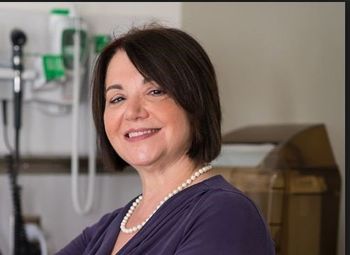
Death With Dignity Program Well Accepted at Seattle Cancer Center
Patients who received a prescription for a lethal dose of secobarbital as part of a Death with Dignity program qualitatively described being grateful for the prescription, whether or not it was used, according to a recent study.
Patients who received a prescription for a lethal dose of secobarbital as part of a Death with Dignity program qualitatively described being grateful for the prescription, whether or not it was used, according to a
Currently, three states in the United States-Washington, Oregon, and Vermont-have Death with Dignity legislation in place that allows adults with a life expectancy of 6 months or less to request and self-administer a lethal medication prescribed by a physician.
“Given ongoing efforts to introduce similar legislation in other states (including Hawaii, Pennsylvania, and Vermont), increasing numbers of health care institutions may be faced with the questions of whether, and how, to respond to requests for assisted dying,” wrote Elizabeth Trice Loggers, MD, PhD, of the Fred Hutchinson Cancer Research Center, and colleagues. “Because this legislation has a disproportionate effect on patients with cancer and their families, the response of a comprehensive cancer center may be particularly instructive.”
Dr. Loggers and colleagues evaluated the implementation and results of a Death with Dignity program at Fred Hutchinson–University of Washington Cancer Consortium and compared it with statewide data from Oregon and Washington.
During the 2.5-year period of the evaluation, 114 patients inquired about the Death with Dignity program, but only 40 patients received prescriptions for the lethal medication. Follow-up revealed that although all 40 patients died, only 60% ingested the medication. Thirty patients (26.3%) made an oral request to pursue the program but either died before completing the process or decided not to pursue the request. Forty-four patients (38.6%) did not pursue the program further after the initial inquiry.
The researchers found that the number of patients who participated in the Death with Dignity program only accounted for a small percentage (0.02%) of the overall number of annual deaths of patients at the cancer center. The majority of participants were white, men, and college-educated.
“Anecdotally, families describe the death as peaceful (even when death has taken longer than the average of approximately 35 minutes),” the researchers wrote. “In addition, both patients and families frequently express gratitude after the patient receives the prescription, regardless of whether it is ever filled or ingested, typically referencing an important sense of control in an uncertain situation.”
The most commonly listed reason for wanting to participate in the Death with Dignity program was loss of autonomy, which was listed by 97.2% of participants. Other reasons listed included inability to engage enjoyable activities (88.9%), and loss of dignity (75%).
Depression was found not to be a relevant factor in the program. No participants at this center required mental health evaluation for depression or decisional incapacity compared with about 5% of patients in Washington and Oregon.
The researchers attribute the acceptance of the program to the “great care taken by our prescribing and consulting clinicians when interacting with patients and families, the low profile of the Death with Dignity program overall, and the willingness of the Seattle Cancer Care Alliance leadership to allow considerable debate before the program was developed.”
Details of the program’s policy are available in a
“A few clinicians who were initially strongly opposed to the Death with Dignity program subsequently expressed their willingness to participate as consulting or prescribing clinicians, which further supports acceptance of the program,” the researchers wrote. “The program ensures that patients (and families) are aware of all the options for high quality end-of-life care, including palliative and hospice care, with the opportunity to have any concerns or fears addressed, while also meeting state requirements.”
Newsletter
Stay up to date on recent advances in the multidisciplinary approach to cancer.






































